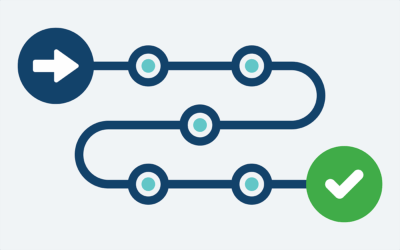How you manage your lowest performing sales team members has a significant impact on the overall effectiveness of your sales organization. Here are 9 ways to help low performers win more deals and better meet their goals.
1. Ask Them What They Want
Take the time to ask each of your low performing salespeople what their goals are for themselves. Find out why they want to be on your team, and what really matters to them.
Use probing and open-ended questions to help them establish their own intrinsic reasons for improving their performance. When they take ownership of the desire to change and improve, the rest of your efforts will yield better results.
2. Establish and Communicate Clear Expectations
Make sure that you have established for your team exactly what your expectations are, including following your sales process, the high-gain activities they should be engaging in, desired behaviors, training requirements, and so on.
Align your expectations with what helps your salespeople to perform better, and communicate them clearly to every team member, including low performers.
3. Track the Right Metrics
Effective metrics will help you establish each team member’s baseline and effectively measure improvement. Beyond win/loss ratios and quota attainment, establish behavior and activity KPIs and other metrics that help you and your salespeople see where their gaps and weaknesses are, as well as what’s working for them and where they are most effective.
4. Uncover the Roots of the Problem
It’s rare that a salesperson performs poorly because they’re just not trying. To help salespeople do a better job, you must first understand why they’re not performing to expectations.
Do they not know what to do? Are there particular stages of the sales process they’re struggling with? Are they lacking essential selling skills? Do they lack the mindset to have the right conversations with clients? Are they not applying their training?
Involve them in this discovery process, so they can take ownership of the problem once it is identified.
5. Co-create a Solution
Once you’ve defined the key problems and gaps with your salesperson, engage them in the process of identifying measurable steps to take to improve performance.
Co-create a performance improvement path, including actionable steps, skills improvement measures, and achievable short-, mid-, and long-term goals.
5. Train, Coach, and Enable to Fill the Gaps
Once you know what each salesperson needs to do in order to improve their performance, make sure they do it by holding them accountable on a regular basis.
Likewise, make appropriate training available to fill any skills gaps. Coach to the areas where they need improvement. And give them access to resources and enablement that will help them achieve their goals.
6. Provide Consistent Reinforcement and Feedback
Prevent the “rubber band” effect by establishing consistent opportunities for coaching, reinforcement, and performance feedback.
Check out this post for tips to build a positive feedback culture on your sales team.
7. Motivate by Focusing on Goals, Gains, and Improvements
Avoid the temptation to focus only on weaknesses and failures. Keep low performers motivated by focusing their attention on their goals, gains they make, and improvements that you witness.
Measurable results may not begin to appear until they have been practicing new skills and approaches for a while, so it’s important to encourage them in the early stages with detailed feedback on their improvements, as well as to reward them when gains do show up in tangible ways.
8. Focus on the Coachable
Sales managers often wonder where they should spend their coaching time. To manage your coaching time most effectively, focus most of your attention on the coachable salespeople on your team. Coachability means having the motivation to improve, the willingness to work at new skills, and the humility to accept feedback willingly and productively.
As you work with your team, you’ll learn which salespeople take what you give them and run with it, reaping productivity gains as a result. You’ll also discover which salespeople you have to fight every step of the way. Reps unwilling to receive coaching may need to be released to the marketplace.
9. Use the Right Communication Style
Everyone has a communication style they feel most comfortable with.
Strong sales managers get to know the behaviors, motivators, and communication preferences of each of their team members (a comprehensive assessment is extremely valuable here) and tailor their approach to be most effective.
The Bottom Line
Assessing your salespeople with a comprehensive assessment tool will uncover not only their behaviors, motivators, and communication style, but also their knowledge of B2B, customer-focused selling practices used by top sales performers.
You can evaluate each sales rep individually, or get a “birds eye view” of how your entire team stacks up against your established ideal performer profile.
The Sales Team Analysis Insights report is a great tool here and will give you an organized and effective way to get the most out of every member of your team.
Have a question? Submit it to The Brooks Group Help Desk and an expert will get back to you within 24 hours. [email protected]






